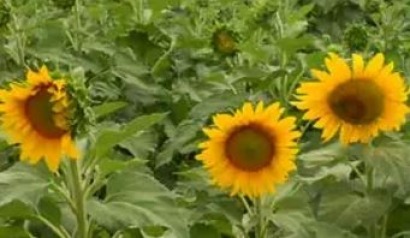
According to an article in the Hawaii Tribune Herald, Bob King, co-founder of Pacific Biodiesel said, “Biofuel crops are an important resource today — and hold great promise for the future — as a sustainable feedstock for renewable fuel production here in Hawaii.” The Maui-based company produces biodiesel from restaurant food oil waste at its Keaau location.
Pacific Biodiesel also has been working on growing sunflowers as a year-round biofuel crop, with farms on Oahu and Hawaii.
In addition to providing a solution for energy security biofuel crops also offer one solution to energy storage due to their ability to sequester carbon from the atmosphere. Plants good at carbon sequestration are therefore prime candidates for future cultivation.
Sugar cane and Napier grass are champions of carbon sequestration: their roots are extremely well-equipped to store carbon dioxide in the soil.
On Hawaii Island, certain sugar cane lands that have gone fallow would be ideal areas to grow biofuel crops for that reason.
The article also quoted Susan Crow, assistant professor for CTAHR and co-author of a recently published study on the subject. “You guys have some amazing volcanic ash soil on the Hamakua Coast,” Crow said. “They (those soils) have an enormous capacity to store carbon.”
The CTAHR study took place on Maui using an experimental plot of land on the HC&S plantation. The January study comes from the first two years of research. It’s not currently known if sugar cane and Napier grass are good at long-term sequestration.
For additional information:
University of Hawaii at Manoa’s College of Tropical Agriculture and Human Resourcese

